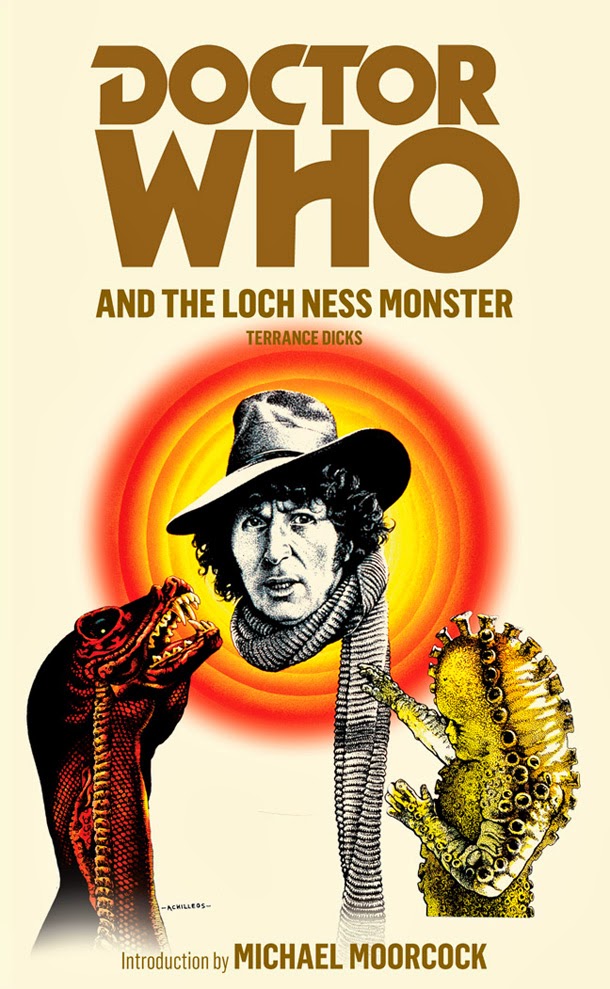Anyway, the weekend was also about books turning up in the post and that's what this post is about. The two books that arrived are pretty cool and I fancied showing them off. Check em' out...
Rorqual Maru was a cyborg - part organic whale, part mechanised ship - and
part god. She was a harvester - a vast plankton rake, now without a crop,
abandoned by earth society when the seas died. So she selected an island for her
grave, hoping to keep her carcass visible for salvage. Although her long ear
heard nothing, she believed that man still lived in his hive. If he should ever
return to the sea, she wanted to serve. She longed for the thrill of a human's
bare feet touching the skin of her deck. She missed the hearty hails, the sweat
and the laughter. She needed mankind. But all humans were long gone ... or were
they?
It's amazing what a well written blurb can do isn't it? I've been looking forward to reading 'The Godwhale' for months and early indications (well, I'm about halfway through the book) are that it will live up to that promise. So far, I've been absolutely captivated by the characters, the world and the premise; long may that continue :o) I've already got plans to read 'Half Past Human' based on how much I'm enjoying 'The Godwhale'. Has anyone else here read it?
In a world where the Plantagenets never fell, Lord Darcy is Chief Investigator for the Duke of Normandy…
Welcome to a world where the Plantagenet kings survived, the laws of magic were discovered and the physical sciences never pursued. In the resulting Anglo-French Empire, a detective like Lord Darcy needs more than a keen mind and an observant eye. Luckily, Darcy can call on the aid of Master Sean O’Lochlainn, forensic sorcerer.
In a world where all the cover art talk tends to focus around the new shiny releases, Gollancz have been quietly going about their business putting gorgeous cover art on older works. Doesn't this cover look lovely? Far better than the one below that I found while having a mooch around on Google...
Oh the early eighties, what a time it was for cover art that didn't quite hit the mark. I much prefer the Golllancz cover which looks a lot fresher, bringing Lord Darcy to the fore instead of hiding him away. I am woefully behind with my Fantasy Masterworks reading (I have a horrible feeling that I promised to do something about that...) so I can see 'Lord Darcy' being an Easter holiday read I think...
Either of these two books tickle your fancy?
It's amazing what a well written blurb can do isn't it? I've been looking forward to reading 'The Godwhale' for months and early indications (well, I'm about halfway through the book) are that it will live up to that promise. So far, I've been absolutely captivated by the characters, the world and the premise; long may that continue :o) I've already got plans to read 'Half Past Human' based on how much I'm enjoying 'The Godwhale'. Has anyone else here read it?
In a world where the Plantagenets never fell, Lord Darcy is Chief Investigator for the Duke of Normandy…
Welcome to a world where the Plantagenet kings survived, the laws of magic were discovered and the physical sciences never pursued. In the resulting Anglo-French Empire, a detective like Lord Darcy needs more than a keen mind and an observant eye. Luckily, Darcy can call on the aid of Master Sean O’Lochlainn, forensic sorcerer.
In a world where all the cover art talk tends to focus around the new shiny releases, Gollancz have been quietly going about their business putting gorgeous cover art on older works. Doesn't this cover look lovely? Far better than the one below that I found while having a mooch around on Google...
Oh the early eighties, what a time it was for cover art that didn't quite hit the mark. I much prefer the Golllancz cover which looks a lot fresher, bringing Lord Darcy to the fore instead of hiding him away. I am woefully behind with my Fantasy Masterworks reading (I have a horrible feeling that I promised to do something about that...) so I can see 'Lord Darcy' being an Easter holiday read I think...
Either of these two books tickle your fancy?
























